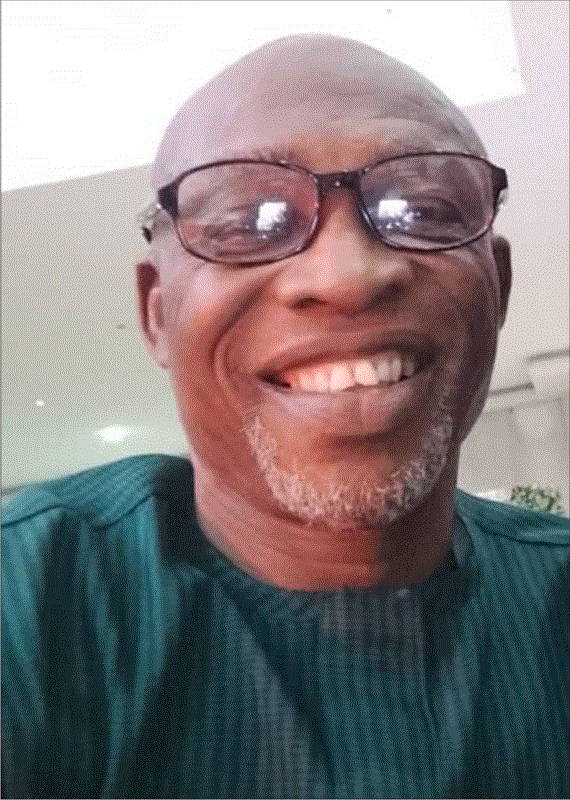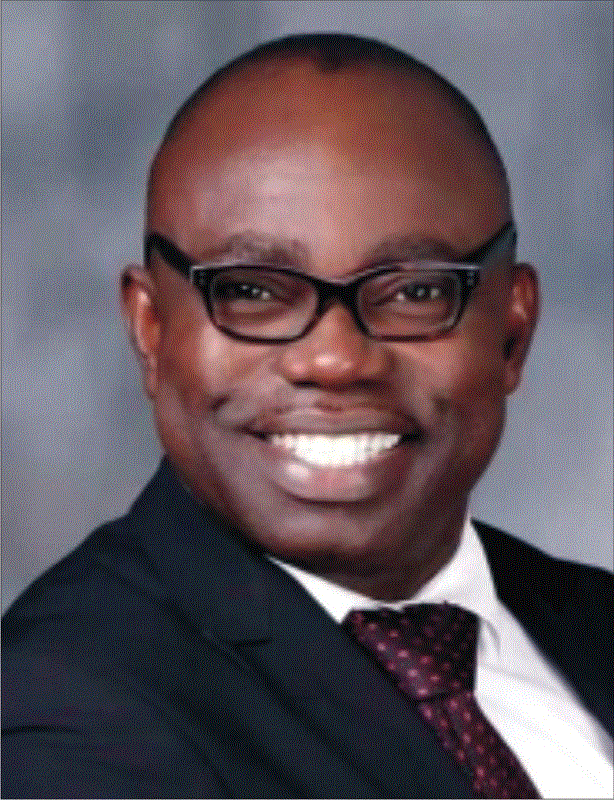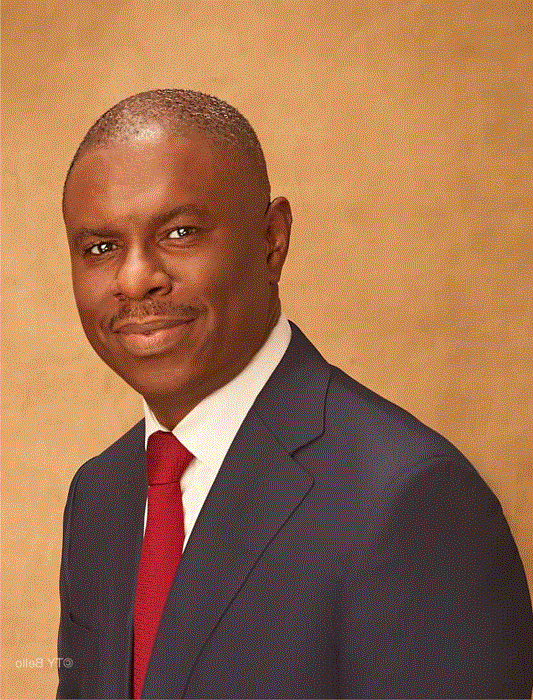Wike’s Key Signature Projects Have Changed Rivers’ Landscape
Being Text of a Speech on “Developing Media Infrastructures for Good Governance, the Example of Rivers State Government” by The Honourable Commissioner of Information and Communications, Rivers State, Pastor Paulinus Nsirim, As Special Guest of Honour/Keynote Speaker at The Rotary Club of Port Harcourt 2020-2021 Media Day on Monday April 19, 2021 at the Rotary Centre, off Trans-Amadi Industrial Way, Port Harcourt.
One thing that is not in doubt in today’s world, especially in the corporate world, is that good public relations image remains essential to achieving great results. Indeed, the fact that a public relations committee had been at the epicenter of the management of not just the activities but also image of Rotary, tells a great deal of story why publicity matters so much to the world’s longest and oldest organized social and humanitarian club.
Rotary and Rotarians may not record much success in their endeavours without publicity. It is to that extent that Rotary and the media must establish and sustain a symbiotic relationship in order to further the goals of Rotary, and most importantly, make a difference in the lives of millions of those who need help, support and assistance to keep alive hope of a better life.
It is for this reason that I wish to commend Rotary club for dedicating the month of April in their International Calendar as Magazine/Media Month. I believe it is a month for the celebration of the media for its role in bringing to the fore the good qualities of Rotary club and its activities in order to inspire the world for better living. Rotary believes that the synergy with the media has been and will continue to be of profound importance to its activities. Let me also commend the media whose advocacy and information management roles have been critical to the achievement of the core goals of Rotary in the society.
Since February 23, 1905 when Rotary was formed and its first meeting of like minds in Chicago, Ilinois in the United States of America, “the characteristics of Rotary Club and those who populate it have remained the same everywhere; the features of service, internationality, fellowship, classification of each vocation, development of goodwill and world understanding, the emphasis of high ethical standards, concern for other people, and many more descriptive qualities, which show care and compassion, respect for others, honesty and integrity, as well as patriotism, industry and hard work”.
The 4-way Test Philosophy of Rotary Club, which in 1943 was translated to the acceptance that whatever Rotarians think, say and do they must be guided by the TRUTH at all times, and must be FAIR, and naturally seen to be so by others. Rotarians must ensure that they, whatever they think, say, or do, help in building GOODWILL and BETTER FRIENDSHIPS across the community, and by extension, the world and that their results are BENEFICIAL to all concerned.
This 4-way Test Philosophy and the roles the media play in upholding a just society, by holding leaders and government accountable at all times, clearly makes it impossible for either the media or Rotary to divorce each other, since both work for the good of the society.
Having said these, let me return to the issue of today.
Media refers to the channels of communication which are utilized for the purposes of dissemination of news, music, movies, education, promotional messages and other data. It includes physical and online newspapers and magazines, television, radio, billboards, telephone, the internet and fax, that provide news and information to the public.
One thing that is legendary and long-standing is the power of the media in shaping society, setting agenda for public discourse and moulding public opinion. Perhaps, that explains why Thomas Jefferson (1743-1826), the third president of the United States of America and principal author of its declaration of Independence once said, that if he had to choose between “a government without newspaper or newspapers without a government, I should not hesitate a moment to prefer the later”.
According to Jefferson, “the press is the best instrument for enlightening the mind of man, and improving him as rational, moral and social being.” Jefferson’s successor, James Madison (1751-1836) corroborated this view when he said; “to the press alone, chequered as it is with abuses, the world is indebted for all the triumphs which have been gained by reason and humanity over error and oppression”.
Truly, the above statements underscore the importance of the media as it carries out its multifaceted roles of providing information education, and entertaining. Also the media acts as a public forum for the discussion of important issues. While the media also plays the role of entertainment, it acts as a watchdog for government, business and other institutions, mirroring society as it were.
Chapter 2, Section 22 of the 1999 Nigerian Constitution states clearly the role of the media in governance. It says, “the press, radio, television and other agencies of the mass media shall at all times be free to uphold the fundamental objectives contained in this chapter and uphold the responsibility and accountability of the government to the people”.This clearly links the media to good governance.
Thus, as required by the constitution, the media which is the watch dog of society should hold public office holders accountable to the people who elected them by monitoring governance closely. Clearly, in the issues of promoting good governance, rule of law, ensuring probity and accountability, wiping out illiteracy and eradicating poverty, the media are the key factors in that strategic link.
The media provides a platform for discussion of all the checks and assessments of the activities of government by bringing public concerns and voices into the open. The media articulates citizens voices and preferences for government to use in policy formulation. They hold government accountable and provide information for the people. Thus, the media are a critical link in the accountability chain between the government and the governed.
With the existence of an unfettered and Independent press, and the spread of modern information and communication technologies, “the media are essential for democratization and guaranteeing good governance through freedom of expression, transparency, accountability, rule of law and providing a pluralist platform for political expression about controversial issues”.
Without good governance, it is difficult to attain nor guarantee social, economic and political progress, because the bedrock or pillar of any modern democracy is good governance.
However, to achieve the humongous roles of the media, there are means through which they can reach the public. This is termed media infrastructure. According to Lisa Parks, a Professor of Comparative Media Studies and Science, Technology and Society at the Massachusetts Institute of Technology, whose research focuses on satellite technologies and global Media, critical studies of media infrastructure, among others, “the word “infrastructure” surfaced in the early twentieth country”as collective term for the surbordinate parts of an undertaking: substructure, foundation,” and first became associated with permanent military installations. Since then, the terms meanings have expanded to encompass power grids and telecommunication networks, subways and freeways, sewer systems and oil pipeline.
While Critical media studies scholars have investigated “networks” for decades, they have only recently begun to think of “infrastructures” as part of their research field.
“Work on media infrastructure has explored the material conditions in which broadcast, cable, satellite, internet and mobile telephony systems are arranged to distribute audiovisual content to sites around the world. While such systems have historically been referred to as “Telecommunication networks, “the reconceptualization of them as “media infrastructures”, signals a shift toward exploring issues of scale, difference, unevenness, rationality, labour, maintenance and repair, literacy etc.”
According to the World Bank, “Media Infrastructure can be a vital and necessary step in the media development process. “A functioning media infrastructure is the underpinning for the rest of the media sector.
Media Infrastructure are defined as the “foundational technologies, services, facilities and outlets that are critical to the communication of information, opinion and expression.
Media Infrastructure can be classified under Networks, which includes data and communication networks such as internet or 5G mobile networks. Other aspects of media infrastructure include “Last mile”, which is the infrastructure required to deliver media to the consumers door, such as an internet connection, newspaper delivery or cable TV services.
They also include information, communication and Technology (ICT) platforms, facilities such as data centre, broadcasting centre, newsroom or modern printing press. Others are broadcast media-media that flows from a simple source to a large audience such as television networks, newspapers and radio statement. Social media and streaming media applications are part of the media infrastructure.
All aspects of media infrastructure available in the state are put to use by the Rivers State Government to promote good governance. Media infrastructure available through the Ministry of Information and Communications and its parastatals (the Rivers State Newspaper Corporation, publishers of The Tide Newspapers; Rivers State Broadcasting Corporation, Operators of Radio Rivers, Rivers State Television (RSTV), Garden City Radio and the Government Printing Press, provide channels of communication for the government to communicate to the people of the state.
Over the years, the Rivers State Government have made huge investments in these MDA’s to underscore the importance attached to them in ensuring good governance, especially in the areas of rule of law, transparency, accountability, effectiveness, consensus Oriented, equity and inclusiveness and responsiveness.
The procurement of a state-of-the art printing machine for The Tide Newspaper, outside Broadcast Van for the Garden City Radio and Radio Rivers, Placement of Rivers State Television on Satellite platforms to enhance global reach, are all aimed at reaching out to the people about government activities and also get the peoples reactions and suggestions. That is not all. Plans have reached advanced stages to completely revamp the Rivers State Newspaper Corporation, publishers of The Tide Newspaper to give the medium a competitive edge in the industry. New computer-to-plate machine, delivery vans, communication equipment and other media infrastructure to enhance its mandate will soon be delivered by the Rivers State Government. In the same vein, the Rivers State Government has set in motion plans for a hitch-free Digital Switch over in the state on July 8, 2021. What that implies is that Rivers State Television would no longer require a transmitter to broadcast to the world. It would translate to an increase in the capacity of the station by improving spectrum efficiency and providing better signal quality.
What this implies in terms of benefit to the government are enormous. Jobs will be created by manufacturers, Surface Mount Technology will be created and chipset industry would be set up, making Nigeria the only of such in West Africa, Central Africa and creating a hub. It would also create local plastics industry jobs that are needed for the gift packs for the Set Top Boxes (STBs), creation of other value added jobs and small businesses.
For the industry, this switch-over would mean massive technology transfer in terms of SMT, chipset design, PCB implementations and opening up ancillary manufacturing opportunities for other electronic devices and equipment.
The Rivers State Government would also benefit immensely from the Digital switch-over as it provides opportunity for enhanced revenue generation. The local government councils can use the STBs to collect TV and radio license fees. It also creates new ways to provide education delivered to the homes through TV and improves social interaction and creativity as communities start to develop applications for the new digital TV platform.
Aside these, the Rivers State Government under the visionary leadership of His Excellency, Nyesom Ezenwo Wike has been open to the infrastructure of the independent media in the state to ensure good governance. The Governor believes strongly that good governance can be facilitated by a strong and independent media scape.
For Governor Nyesom Wike, there is nothing to hide, but much to improve. Journalists are free to monitor, investigate and criticize the administration and he is always ready and handy to let the public through the media see and dissect his administration activities.
Rivers State Government allows the media to contribute to the participation process by the citizenry through assent or dissent or exploring aspects of issues not considered through official channels and in arenas where face-to-face participation is impossible.
As you are aware, the Rivers State Government under the pragmatic and visionary leadership of Governor Nyesom Wike has embarked on rapid infrastructure development that has changed the landscape of the state through the execution of key signature projects particularly in the area of road infrastructure, to accelerate robust economic activities within the urban centres and their environs.
Governor Nyesom Wike did not jump into governance. He is a visioner who believes in listening and giving to the people what they want. He engaged stakeholder groups before the NEW vision blueprint was launched. All the stakeholder groups in the state were consulted and what you have is a collective vision of Rivers people, but there is a visioner in the person of His Excellency, Nyesom Ezenwo Wike. The engagement of stakeholders was robust. Visionary leaders use that as a strategy for stake-holders buy-in.
Using the various media infrastructure in which a wide range of debates take place and variety of viewpoints represented, the Rivers State Government led by His Excellency, Nyesom Ezenwo Wike has continued to deliver projects that impact positively for the betterment of Rivers State and her people.
Between late last year and the whole of the first quarter of 2021, Rivers State was on the global map as eminent citizens of Nigeria joined Governor Nyesom Ezenwo Wike to commission projects in eleven (11) Local Government Area of the State. This unprecedented development coming at a time when most leaders were hiding under the cover of the Covid-19 pandemic to cover their ineptitude will surely remain legendary.
Many social commentators across the country have opined with convictions, that the only person who can realistically beat this impressive record is Governor Nyesom Wike himself, especially when the next phase of projects commissioning would commence, which will unveil some of the most amazing and marvelous legacy infrastructural projects ever seen in River State.
Of course, the delivery of quality projects to the people is not new to Governor Nyesom Ezenwo Wike. Everyone who has followed the trajectory of his administration objectively, will agree that he hit the ground running from the first day he assumed office in 2015, fixing roads and bridges, reorganizing institutions and establishments, opening up clamped down spaces and courageously mending a broken, dysfunctional and deliberately abandoned state.
Project commissioning has become synonymous with the Governor Wike administration in the last five years and even against the backdrop of the noisome buzzing of a jobless, fragmented and confused opposition in the state. One important fact which even his critics will admit and even concede to is that the construction of infrastructural projects like road, bridges, jetties is not a one day job. Quality projects require careful planning, expert handling and many months of hard work to ensure that projects are delivered to specification to serve the people for a long time.
This is what the Rivers State Government under Governor Wike has achieved with class, panache, tremendous success and a lot of goodwill and appreciation from Rivers people who will be the beneficiaries of these projects.
Distinguished ladies and gentlemen, good governance is not rocket science. It is achievable if you have the right mental attitude, the residual capacity, the perspicacity and sagacity of a leader who has a vision. This is what Governor Nyesom Ezenwo Wike has brought to governance in Rivers State.
I will like to end with this quote by Former Governor of Anambra State and 2019 PDP Vice Presidential candidates, Dr. Peter Obi, while commissioning one of the numerous projects undertaken by Governor Nyesom Ezenwo Wike, “Accountability in government is the most critical yardstick to determine good governance and to build the trust of the people. For recruitment into governance, competence, capacity and visible performance like we are seeing here today should be embraced”.
Governor Nyesom Ezenwo Wike has made good governance look like a piece of cake using all the media infrastructure at his disposal. But to some, good governance remains a fleeting illusion pursued, but never attained.
I thank you all for listening.



